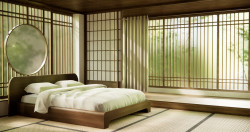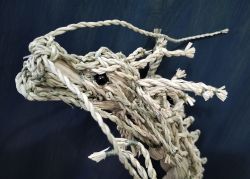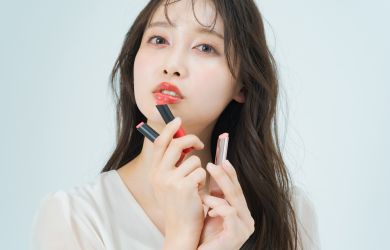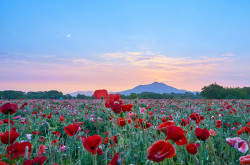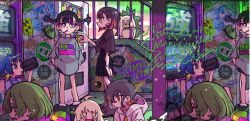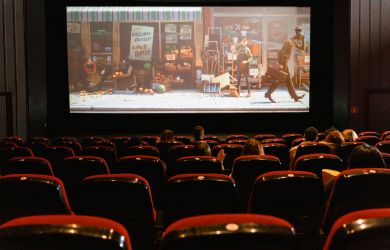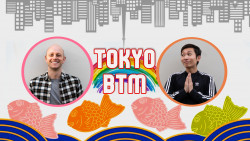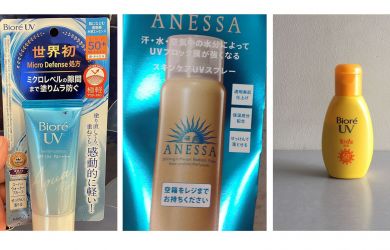
Originally published on metropolis.co.jp on June 2010
This weekend, Yokohama will host African Festa, an annual cultural event organized by the Ministry of Foreign Affairs that aims to “encourage Japanese citizens to feel an affinity for Africa.” But is it the real Africa—or, as Congolese promoter Felix Missiala puts it, just “déjà vu”? We weren’t sure ourselves, so we sat down with five Africans doing interesting work here in Tokyo to talk about their lives in Japan.
Felix Missiala, Promoter
Democratic Republic of Congo

Portraits by Benjamin Park Morin
There’s a question I wanted to ask about Metropolis: why no Africans? We have a lot of people in the community, and we read Metropolis. What would I like to see in the magazine? All the communities: not only white and Japanese. A little bit of color. When you read it as a black guy, you feel like it’s really white.
I was teaching English in schools here. My class was about my country. I had to do one day; they called me for three more days. They didn’t care about the language—they said they want me to talk about my country, and I talked. One kid asked me, “Afurika, raion ippai arimasu ka?” I said, “Wow, the first time I saw a lion, it was in London.” And it’s true. They were thinking we have mangoes everywhere.
People in Japan have this cliché about Africa. It’s all really from the government. I’ve had people giving me money just because I said I was from Africa. We talked, and then they were like, “Kawaisou.” It happens, not only to me.
The Africans who came here 15 years ago, they had no choice: you had to marry and work in a factory. They would tell you: oh, you do that. So they led me to a factory. I did a factory job. And then I said, no. So I started to do my events, African nights. People were coming, it was new—to play modern African music that we play in the clubs in Africa.
Now I’m working as a full-time producer. At my last event, we did Japanese enka with African rhythms. I’m working on this mixture of culture, because the Japanese have a very, very fake image of Africa. We have a lot of things coming up, like Jafro TV—Sky Perfect, but with only African channels.
African Festa is organized by the Japanese government. They will tell you: we need this, and this, and this, and this. This is Africa for us. Like you say in English, it’s déjà vu: every year the same things, the same people. Every year. With you—I mean whites—they don’t tell you what to do. You tell them what to do. But with us, they come and tell us.
They should let Africans express themselves. They should help us to bring the real African culture. We can never take over Japan—it’s impossible. We are a small minority, but we have kids here, born and raised here, some of us are married with Japanese, so they have to accept that we are here.
Things are moving in Africa. The Chinese are in Africa. The Americans are back in Africa. All the world is back in Africa. Big companies are going there. Japanese, they also want to go to Africa, but they don’t know how. Why? Because after all these years, they were sure that they knew.
Jafro TV will launch this summer.
Tilksew Seife, restaurateur
Ethiopia

I’ve been in Japan for almost 14 years. Before I came to Japan, I used to live in North Korea, where I worked at the embassy as a waiter. I had to transit in China to go to North Korea, and I remember—this was 16 or 17 years ago—I was very young, and I wanted to show my Ethiopian traditional clothes. It was March, I think, and Beijing airport was very cold. I didn’t know that—no one told me. When the door opened, I was like, “Where am I?” And the trees—I thought I was in some kind of desert, because there were no leaves on the trees.
You can’t compare something. When I lived in North Korea, China was a little bit better. From China, Hong Kong was a little bit better. From Hong Kong, Japan was better. North Korea is very clean, but they don’t have anything. That’s why it’s clean. Nothing—and they don’t have Cup Noodles, either.
I’m happy to cook. Seventeen years of my life I’m cooking. “Addis” means “new” in Ethiopian. If you see this, on the menu, it’s “Addis” and a flower, so it’s Addis Ababa. I didn’t decide before what kind of food I should make. I see food, I buy vegetables and I buy meat. I just want to make something that people can eat, that’s good. I don’t want to be an Italian restaurant, a French restaurant or whatever.
I’m using spices which are very unique, like berbere. I put 12 or 15 kinds of spices together and have fresh herbs. My mother sends them for me. It’s easy to make Ethiopian food, but I don’t want the concept of Ethiopian food—I want the concept of international food. If you want Ethiopian food, just give me two days. With Ethiopian food, you have injera made from teff flour, which you don’t get here. It’s sort of like a pancake. So if you ask me to make Ethiopian food, please give me two days’ notice. We are very flexible.
Ethiopia was the first country from Africa to open an embassy in Japan. Most Japanese remember Abebe Bikila, who ran without shoes in the Olympics. Haile Selassie came here, and they were planning a royal family marriage. They used to have a really good relationship, but this generation, they don’t know. Some people know “Shiba no jo-ou”—Queen of Sheba.
I think there are 500 people here. For Ethiopians, it’s very far. When I came to Japan, it was maybe 25 or 30 people, including the embassy. There are not so many people interested in Japan—Ethiopian people are interested in going to Europe or the States.
Tilksew is the owner of Addis restaurant in Toritsu-Daigaku. http://addiscafetokyo.com
